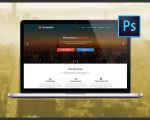1. Why Custom-Built Websites Are Essential for Small Businesses
When I first started my small business, I knew that having a strong online presence was essential. But what I didn’t realize at the time was how much of an impact a custom-built website would have on my success. At first, I used a basic website template, but it didn’t capture my business’s unique identity or offer the functionality I needed. I quickly realized that a custom-built website is not just a luxury for large corporations, but a must-have for small businesses as well.
Custom-built websites provide numerous benefits that can help small businesses stand out in a crowded digital space. These websites are tailored specifically to meet the needs of your business, offering more flexibility and functionality than generic website templates. In this article, I’ll share why investing in a custom-built website for your small business is one of the best decisions you can make, and how it can help your business grow.
2. The Benefits of Custom Websites for Small Businesses
When I decided to invest in a custom-built website for my small business, I didn’t realize just how much of a difference it would make. The website allowed me to convey my brand’s message clearly, engage with customers more effectively, and streamline my business operations. Below are the key benefits I experienced:
2.1 Tailored Design for Your Brand
One of the biggest advantages of a custom-built website is the ability to create a design that is unique to your brand. Unlike templates, which have limited customization options, custom websites allow for full creative freedom. I worked with a web designer to incorporate my business’s colors, logo, and overall aesthetic into the design, ensuring that the website reflected the identity I wanted to project to my customers. This personalization gave my business a professional and cohesive online presence that was hard to achieve with a standard template.
2.2 Improved User Experience (UX)
Another major benefit of a custom-built website is the ability to optimize the user experience. A well-designed website ensures that visitors can easily navigate and find the information they need. For example, I ensured that my website’s navigation was intuitive, with clearly labeled sections and a streamlined checkout process for customers purchasing products. A good UX design can significantly reduce bounce rates and increase conversion rates, both of which are crucial for small businesses.
2.3 Enhanced Functionality
Custom-built websites offer a level of functionality that template websites simply can’t match. Whether you need custom forms, integration with third-party tools, or specialized features like an online booking system or e-commerce platform, a custom website can be designed to meet your specific needs. I needed my website to be able to accept payments, integrate with my CRM, and manage inventory—all features that were easily incorporated into my custom design.
2.4 Search Engine Optimization ( SEO) Benefits
SEO is a critical part of any small business website. With a custom-built website, you have full control over how your site is structured, which is crucial for optimizing your site for search engines. For instance, I was able to ensure that my website’s code was clean, all pages were properly linked, and the content was structured in a way that Google would favor. This level of control helped improve my search engine ranking, driving more organic traffic to my site.
3. How to Design a Custom-Built Website for Your Small Business
Now that we’ve covered the benefits of custom websites, you might be wondering how to go about designing one for your small business. Based on my experience, I can tell you that while it may seem daunting, the process is more manageable when you break it down into a few key steps:
3.1 Define Your Goals and Target Audience
Before starting the design process, take time to define what you want to achieve with your website. For me, the goal was to drive sales and provide potential customers with easy access to information about my products and services. Once you’ve defined your goals, you can tailor the design to meet those objectives. Additionally, understanding your target audience is crucial to creating a website that appeals to them.
3.2 Work with a Professional Web Designer
While it’s tempting to use website builders like Wix or Squarespace, I found that working with a professional web designer made all the difference. A web designer can help you bring your vision to life and ensure that your website is not only visually appealing but also functional and user-friendly. I worked closely with my designer to create a website that met all of my business needs and delivered a seamless experience for my customers.
3.3 Choose the Right Platform and Tools
Choosing the right platform and tools for your website is essential. Some small businesses may benefit from content management systems (CMS) like WordPress, while others may prefer an e-commerce platform like Shopify or a custom solution. It’s important to choose a platform that fits your business model and offers the flexibility to grow as your business evolves. In my case, I chose a custom CMS that was easy to update and could scale with my business as it grew.
3.4 Optimize for Mobile
In today’s mobile-first world, it’s essential to design a website that is fully responsive and optimized for mobile devices. I made sure that my custom-built website looked and functioned seamlessly on both desktop and mobile, as many of my customers visit my site on their smartphones. Google also favors mobile-friendly websites in search rankings, so this step is crucial for SEO as well.
4. Maintaining and Updating Your Custom Website
Once your custom-built website is live, it’s important to keep it updated and well-maintained. This includes regularly updating content, optimizing for SEO, and ensuring that all features are working properly. I personally set up a schedule to review my website every few months to make sure everything was running smoothly. Regular updates also help keep your website secure and ensure that it provides the best experience for your visitors.
4.1 Regularly Add Fresh Content
One of the best ways to keep your custom website relevant is by regularly adding fresh content. For example, I created a blog section on my site to share industry insights, updates on new products, and helpful tips for my customers. Adding new content regularly not only keeps your audience engaged but also helps improve your SEO ranking.
4.2 Monitor Website Performance
It’s important to track how well your website is performing so you can make data-driven decisions. Tools like Google Analytics provide valuable insights into traffic sources, user behavior, and other key metrics. By monitoring your website’s performance, I was able to identify areas for improvement and optimize the user experience over time.
4.3 Keep Software and Security Updated
Another critical aspect of website maintenance is keeping your software and security up to date. I made sure to install updates for my platform and plugins regularly to ensure my site remained secure from potential threats. Investing in good website security also protects your customers' data, which is essential for maintaining trust and credibility.
5. Final Thoughts on Custom Websites for Small Businesses
Creating a custom-built website for your small business can be a game-changer. It not only helps you establish a strong online presence but also provides the flexibility to grow and adapt as your business needs evolve. Whether you’re looking to improve user experience, increase sales, or stand out in a competitive market, a custom website is an invaluable tool. If you’re ready to invest in a website that truly represents your brand and meets your business goals, consider working with a professional web designer to bring your vision to life.








